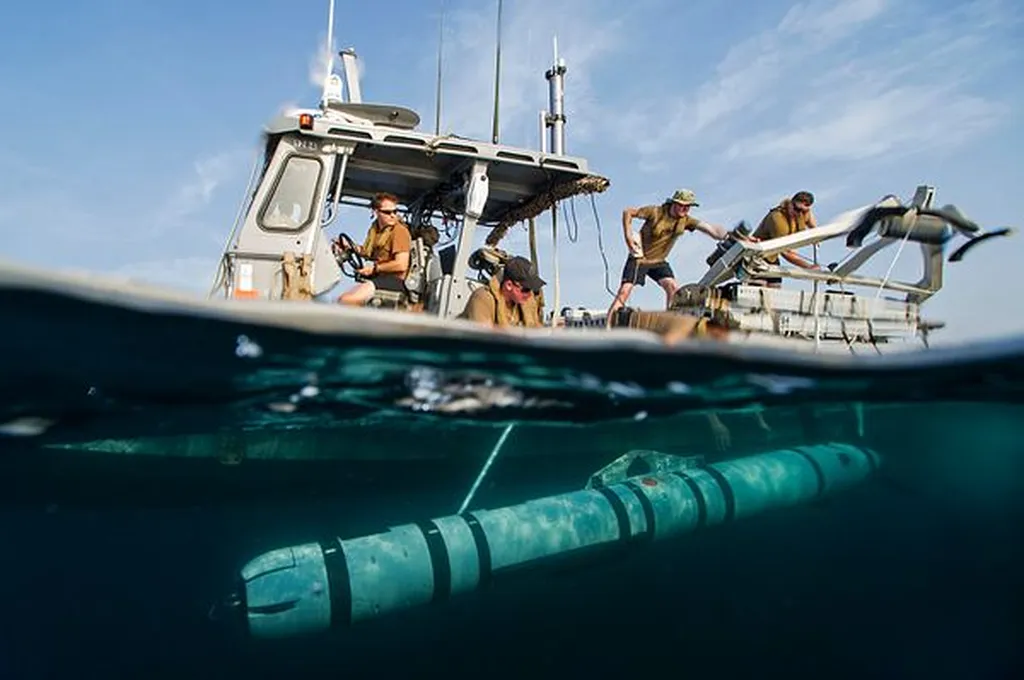Researchers from the School of Marine Science and Technology at Northwestern Polytechnical University in China have developed a novel approach to enhance underwater communication for divers. The team, led by Tinglong Deng, has proposed a scheme that leverages maritime unmanned systems to provide reliable and high-speed communication services in challenging underwater environments.
The increasing demand for underwater human activities has highlighted the significant challenges associated with underwater communication. Traditional methods of diver communication face numerous hurdles due to the complex and dynamic nature of underwater environments. To address these issues, the researchers have proposed a cooperative approach that utilizes autonomous underwater vehicles (AUVs) and unmanned surface vehicles (USVs) as relay nodes.
The proposed scheme equips multiple AUVs with optical and acoustic multimodal communication devices, enabling them to provide adaptive communication services based on changes in the diver’s activity area. By employing a multi-agent reinforcement learning (MARL) approach, the researchers can control the cooperative movement of AUVs, ensuring high-speed and reliable data transmission between divers. This innovative use of MARL allows the AUVs to adapt to the diver’s movements and maintain optimal communication links.
In addition to AUVs, the scheme also utilizes the advantages of on-demand deployment and wide coverage of USVs as surface relay nodes. These USVs coordinate and forward information from the AUVs, further enhancing the communication network. The AUVs are controlled to adaptively select relay USV nodes for data transmission, ensuring high-quality communication between divers and the surface platform.
The researchers have conducted simulation verifications to validate the effectiveness of their proposed scheme. The results demonstrate that the scheme can effectively achieve reliable and high-speed communication for divers, addressing the significant challenges posed by complex underwater environments. This innovative approach has the potential to revolutionize underwater communication, enhancing the safety and efficiency of divers in various applications.
The practical applications of this research are vast. In commercial diving operations, improved communication can enhance safety protocols and operational efficiency. For scientific research, reliable underwater communication facilitates real-time data collection and analysis, enabling researchers to make informed decisions quickly. In search and rescue missions, high-speed and reliable communication can be critical in locating and assisting divers in distress.
Furthermore, the use of unmanned systems in this context aligns with the growing trend towards automation and digitalization in the maritime industry. As the sector continues to evolve, the integration of advanced technologies like MARL and unmanned vehicles will play a crucial role in overcoming longstanding challenges and driving innovation.
In conclusion, the research conducted by Tinglong Deng and his team at Northwestern Polytechnical University represents a significant advancement in underwater communication technology. By leveraging the capabilities of AUVs and USVs, and employing sophisticated MARL techniques, the proposed scheme offers a robust solution to the complexities of underwater communication. This work not only enhances the safety and efficiency of diver operations but also paves the way for further advancements in maritime technology. Read the original research paper here.

